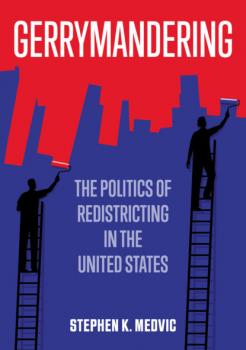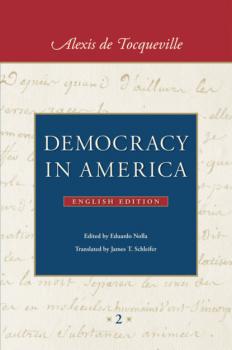Социальная психология
Различные книги в жанре Социальная психологияЭтикет с Анной Минаковой
«Этикет – это нескучно», – говорит Анна Минакова, журналист, автор и ведущая проекта «Этикет с Анной Минаковой» на радио «Коммерсантъ FM». В своей книге она собрала самые нужные, неочевидные и даже спорные советы по современному этикету. Из книги вы узнаете не только, как есть гамбургер на приеме у английской королевы, но и как безупречно вести себя во время zoom-конференций и при соблюдении масочного режима. В формате PDF A4 сохранен издательский макет книги.
Колодец детских невзгод. От стресса к хроническим болезням
Доктор Надин Бёрк Харрис, известный врач, оказывающий помощь детям с психологическими травмами, проводит глубокое исследования по выявлению связи между неблагоприятным детским опытом и развитием заболеваний. Это трогательная история, в которой Надин показывает судьбы маленьких и взрослых героев, а также делится собственной скорбью. Стараясь забыть тяжелое детство, мы играем в опасную игру, так как тело и мозг помнят все. Подавленные эмоции проявляются болезнями и неадекватными реакциями. Наша задача посмотреть на случившееся без трагизма, с целью самопомощи. Зная особенности психики, легче освободиться от чувства вины и стыда. Прочитав книгу, вы станете бережнее относиться к себе и близким. В формате PDF A4 сохранен издательский макет.
Gerrymandering
For nearly as long as there have been electoral districts in America, politicians have gerrymandered those districts. Though the practice has changed over time, the public reaction to it has remained the same: gerrymandering is reviled. There is, of course, good reason for that sentiment. Gerrymandering is intended to maximize the number of legislative seats for one party. As such, it is an attempt to gain what appears to be an unfair advantage in elections. Nevertheless, gerrymandering is not well understood by most people and this lack of understanding leads to a false sense that there are easy solutions to this complex problem. Gerrymandering: The Politics of Redistricting in the United States unpacks the complicated process of gerrymandering, reflecting upon the normative issues to which it gives rise. Tracing the history of partisan gerrymandering from its nineteenth-century roots to the present day, the book explains its legal status and implementation, its consequences, and possible options for reform. The result is a balanced analysis of gerrymandering that acknowledges its troubling aspects while recognizing that, as long as district boundaries have to be drawn, there is no perfect way to do so.
Towards a Political Education Through Environmental Issues
The growing field of political education through environmental issues is organized around processes, which reach beyond the formal ones found in academic disciplines and national curricula into informal processes (such as social mobilization) and nonformal processes (such as those found in various international educational recommendations). <p>Using theoretical approaches from the fields of political philosophy and the social sciences, this book develops a simultaneously conceptual and analytical framework for the political in educational content involving environmental issues. This framework is then used to empirically analyze educational content on sustainable development formulated by UNESCO, as well as the Tunisian curriculum. <p>The theoretical and empirical studies carried out in this book lead to proposed curriculum tags for political education through environmental issues, with the intent of opening this field to inclusion in the didactics of curriculum research.
The Crisis
The Crisis was a London weekly published between January 1775 and October 1776. It was the longest-running weekly pamphlet series printed in the British Atlantic world during those years, and it used unusually bold, pithy language. Neither the longevity of the effort nor the colorful language employed would be reason enough to collect and print all ninety-two issues under one cover in a modern edition. The Crisis lays claim to our attention because of its place in the rise of freedom of the press, its self-conscious attempt to create a transatlantic community of protest, and its targeting of the king as the source of political problems—but without attacking the institution of monarchy itself.The Crisis was condemned informally by leaders in the British government, and then formally in court, as a dangerous example of seditious libel. Copies of it were publicly burned, and yet publication continued uninterrupted. The men behind The Crisis were determined to interest the British public in American affairs and were no doubt pleased when various issues were reprinted in the colonies. They played on shared beliefs and shared fears: beliefs in the existence of fundamental rights, rights beyond the reach of any government, and the fear that loss of those rights in Britain’s American colonies could lead to their loss in Britain itself. They denounced George III in language at once harsh and florid, and did so many months before Thomas Paine’s Common Sense. Even so, The Crisis did not call on Britons to overthrow monarchy with a republic, and its ardor for the Patriot cause cooled once Revolutionary Americans declared their independence. It stands as proof that strident rhetoric does not necessarily lead to radical political action. Its history also shows that ideas, once unleashed, take on a life of their own.Neil L. York is professor of history at Brigham Young University. He is the author or editor of a dozen books, including, most recently, The American Revolution, 1760–1790: New Nation as New Empire.
America’s Second Crusade
In this work William Henry Chamberlin offers his perspective as a seasoned journalist on the United States’ involvement in World War II. Written only five years after the unconditional surrenders of Germany and Japan, the book is a window into its time.William Henry Chamberlin (1897–1969) was an American journalist best known for his writings on the Cold War, Communism, and U.S. foreign policy. Please note: This title is available as an ebook for purchase on Amazon, Barnes and Noble, and iTunes.
Democracy in America
In 1831, Alexis de Tocqueville and Gustave de Beaumont spent nine months in the U.S. studying American prisons on behalf of the French government. They investigated not just the prison system but indeed every aspect of American public and private life—the political, economic, religious, cultural, and above all the social life of the young nation. From Tocqueville’s copious notes came Democracy in America.This English-only edition of Democracy in America features Eduardo Nolla’s incisive notes to James Schleifer’s English translation of the French text, with extensive reference to early outlines, drafts, manuscript variants, marginalia, unpublished fragments, and other materials: “This new Democracy is not only the one that Tocqueville presented to the reader of 1835, then to the reader of 1840. . . the reader will see how Tocqueville proceeded with the elaboration of the main ideas of this book.”Alexis de Tocqueville (1805–1859) was a French writer and politician.Eduardo Nolla is a Professor at the Universidad San Pablo-CEU, Madrid.James T. Schleifer is emeritus Dean of the Library and Professor of History at the College of New Rochelle and has been a visiting lecturer at Yale University.Please note: This title is available as an ebook for purchase on Amazon, Barnes and Noble, and iTunes.









